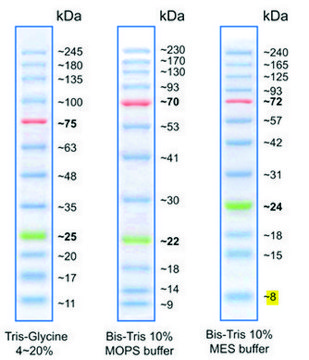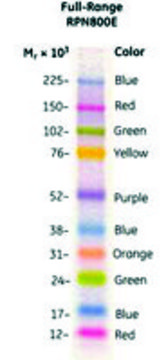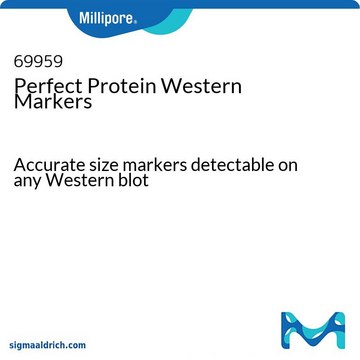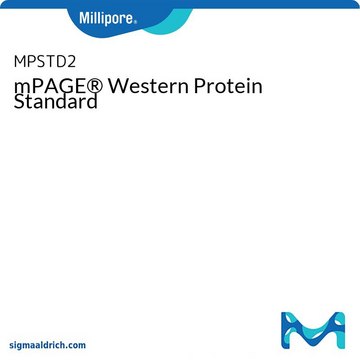22479
Supeltex M-4 Capillary Ferrule, General Purpose
I.D. 0.8 mm, 0.53 mm Column I.D., pkg of 50 ea
Sign Into View Organizational & Contract Pricing
Select a Size
Change View
5 X 1 VIAL
CA$1,140.00
About This Item
UNSPSC Code:
41121815
Recommended Products
packaging
pkg of 50 ea
I.D.
0.8 mm
compatibility
0.53 mm Column I.D.
General description
Supelco has refined the design of these graphite ferrules to provide a clean, sharp profile with minimal flash.
Characteristics: Seals at one-quarter turn past fingertight. Maximum sealing surface contact, reduced risk of column contamination at installation.
Material Composition: flexible graphite
Maximum Temperature: 450 °C
Characteristics: Seals at one-quarter turn past fingertight. Maximum sealing surface contact, reduced risk of column contamination at installation.
Material Composition: flexible graphite
Maximum Temperature: 450 °C
Legal Information
Still not finding the right product?
Explore all of our products under Supeltex M-4 Capillary Ferrule, General Purpose
Choose from one of the most recent versions:
Certificates of Analysis (COA)
Lot/Batch Number
It looks like we've run into a problem, but you can still download Certificates of Analysis from our Documents section.
If you need assistance, please contact Customer Support
Already Own This Product?
Find documentation for the products that you have recently purchased in the Document Library.
Yi-Shu Huang et al.
International journal of molecular sciences, 22(4) (2021-03-07)
Epidermal growth factor receptor (EGFR) specific therapeutics is of great importance in cancer treatment. Fcy-hEGF fusion protein, composed of yeast cytosine deaminase (Fcy) and human EGF (hEGF), is capable of binding to EGFR and enzymatically convert 5-fluorocytosine (5-FC) to 1000-fold
Meilyn Rodriguez-Hernandez et al.
Protein and peptide letters, 27(2), 145-157 (2019-10-18)
Glycogen storage disease type III (GSDIII, Cori/Forbes disease) is a metabolic disorder due to the deficiency of the Glycogen Debranching Enzyme (GDE), a large monomeric protein (about 176 kDa) with two distinct enzymatic activities: 4-α-glucantransferase and amylo-α-1,6-glucosidase. Several mutations along
Silvia Carloni et al.
Experimental neurology, 324, 113117-113117 (2019-11-18)
Previous studies have shown that simvastatin (Sim) has neuroprotective effects in a neonatal model of hypoxia-ischemia (HI)-induced brain injury when administered before but not after HI, pointing to the preconditioning (PC)-like effects of the statin. The present study aimed to









